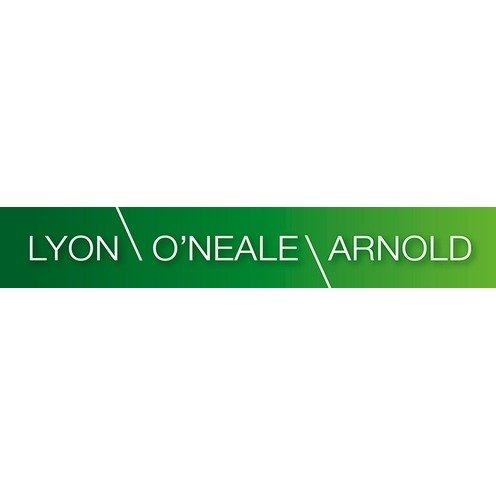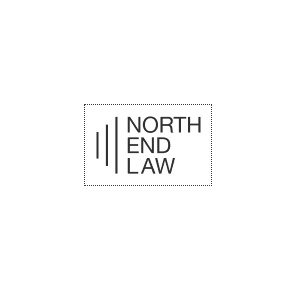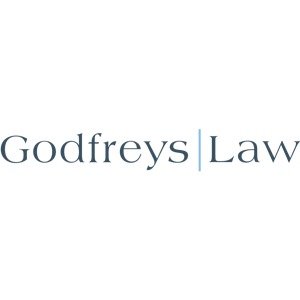Best Structured Finance Lawyers in New Zealand
Share your needs with us, get contacted by law firms.
Free. Takes 2 min.
Or refine your search by selecting a city:
List of the best lawyers in New Zealand
About Structured Finance Law in New Zealand
Structured finance in New Zealand refers to complex financial transactions that go beyond traditional lending or investment. These typically involve pooling financial assets, such as mortgages, loans, or receivables, and then creating securities backed by these pools. Such arrangements often require tailored legal frameworks to address the risks, protections, and compliance aspects involved. Structured finance is commonly used in areas like asset-backed securities, securitizations, and project finance, providing businesses with capital market access and investors with new investment products. In New Zealand, the regulatory environment is stable, transparent, and designed to protect market integrity and participants.
Why You May Need a Lawyer
Structured finance transactions are intricate, often involving multiple parties, complex documentation, and significant compliance requirements. You may need a lawyer if you are:
- Structuring or investing in asset-backed securities or securitization deals
- Seeking project finance for large infrastructure or commercial projects
- Negotiating credit derivatives, structured notes, or synthetic arrangements
- Ensuring compliance with Financial Markets Conduct Act and other regulatory requirements
- Addressing cross-border structured finance matters
- Evaluating or mitigating legal risks in existing or proposed deals
- Dealing with insolvency or restructuring situations involving structured finance assets
An experienced structured finance lawyer can help ensure documents are compliant, negotiate terms, align the deal with legal and market standards, and represent your interests in negotiations or disputes.
Local Laws Overview
Structured finance activities in New Zealand are primarily governed by several key laws and regulations, which establish the framework for market participation and investor protection. Important aspects include:
- Financial Markets Conduct Act 2013 (FMCA) - Sets the rules for the offer and trading of financial products, disclosure requirements, and conduct standards
- Companies Act 1993 - Governs company formation, administration, and insolvency matters relevant to structured finance vehicles
- Personal Property Securities Act 1999 - Provides the system for registering security interests in assets often involved in asset-backed transactions
- Financial Service Providers (Registration and Dispute Resolution) Act 2008 - Requires registration of certain finance entities and access to dispute resolution schemes
- Reserve Bank of New Zealand oversight - Plays a role in regulated entities, especially registered banks involved in securitization
Investments must comply with robust disclosure obligations, security arrangements, and risk management protocols, often requiring dedicated trust and custodial arrangements to protect investors.
Frequently Asked Questions
What is structured finance in the context of New Zealand?
Structured finance refers to financial arrangements, like the pooling of assets to create securities or funding solutions, using complex legal and financial structuring. Examples include asset-backed securities, securitizations, and project finance transactions.
Who typically participates in structured finance transactions?
Main participants include issuers such as banks or financial institutions, corporate borrowers, sponsor entities, investors, trustees or custodians, and legal and financial advisors.
Are structured finance products regulated in New Zealand?
Yes, structured finance products are regulated primarily under the Financial Markets Conduct Act 2013, which imposes disclosure, conduct, and compliance requirements on issuers and intermediaries.
What legal documents are involved in structured finance?
Key documents include offering documents, trust deeds, security trust deeds, loan or receivables sale agreements, servicing agreements, and investor information statements.
How are investor interests protected?
Investor protection is ensured through robust disclosure rules, independent trustees or custodians, security interests over assets, and regulation by the Financial Markets Authority.
What risks should I be aware of with structured finance?
Risks include credit risk, market and liquidity risk, legal and documentation risk, regulatory risk, and counterparty risk, all of which should be evaluated with qualified legal advice.
Can overseas investors participate in New Zealand structured finance deals?
Yes, overseas investors can participate, but they may be subject to additional regulatory requirements, including anti-money laundering rules and, in some cases, Overseas Investment Office approval.
What happens if an underlying borrower defaults?
If an underlying borrower defaults, the security structure and legal documents will determine how investors are repaid, often with the trustee taking possession of the security and distributing proceeds according to pre-set priorities.
Is insolvency a key concern for structured finance?
Yes, the insolvency of issuers, sponsors, or service providers can affect the transaction. Deals are usually structured to isolate assets and minimize the risk through techniques such as bankruptcy remoteness.
When should I seek legal advice?
Legal advice should be sought at the inception of any structured finance deal, when reviewing or negotiating documents, or if you have concerns over compliance, insolvency, or risk exposures.
Additional Resources
If you are seeking more information on structured finance, these resources may be helpful:
- Financial Markets Authority - Oversees regulation and enforcement in financial markets
- Reserve Bank of New Zealand - Responsible for banking sector oversight
- Ministry of Business, Innovation and Employment - Provides policy and consumer information on financial products
- Registrar of Financial Service Providers - Manages registration of relevant market participants
- New Zealand Law Society - Can help locate a qualified structured finance lawyer
Next Steps
If you need legal assistance in structured finance:
- Gather relevant information about your proposed transaction, investment, or concern
- Research and shortlist lawyers with expertise in structured finance and securities law
- Arrange a consultation to discuss your specific needs, risks, and goals
- Prepare questions in advance, such as those related to compliance, documentation, or investor protections
- Take notes during your consultation and confirm fees and timelines before proceeding
- Engage your chosen lawyer to draft, review, or negotiate documents and provide ongoing legal support as the transaction progresses
Professional legal guidance will help safeguard your interests and ensure compliance with New Zealand laws when navigating structured finance transactions.
Lawzana helps you find the best lawyers and law firms in New Zealand through a curated and pre-screened list of qualified legal professionals. Our platform offers rankings and detailed profiles of attorneys and law firms, allowing you to compare based on practice areas, including Structured Finance, experience, and client feedback.
Each profile includes a description of the firm's areas of practice, client reviews, team members and partners, year of establishment, spoken languages, office locations, contact information, social media presence, and any published articles or resources. Most firms on our platform speak English and are experienced in both local and international legal matters.
Get a quote from top-rated law firms in New Zealand — quickly, securely, and without unnecessary hassle.
Disclaimer:
The information provided on this page is for general informational purposes only and does not constitute legal advice. While we strive to ensure the accuracy and relevance of the content, legal information may change over time, and interpretations of the law can vary. You should always consult with a qualified legal professional for advice specific to your situation.
We disclaim all liability for actions taken or not taken based on the content of this page. If you believe any information is incorrect or outdated, please contact us, and we will review and update it where appropriate.
Browse structured finance law firms by city in New Zealand
Refine your search by selecting a city.

















